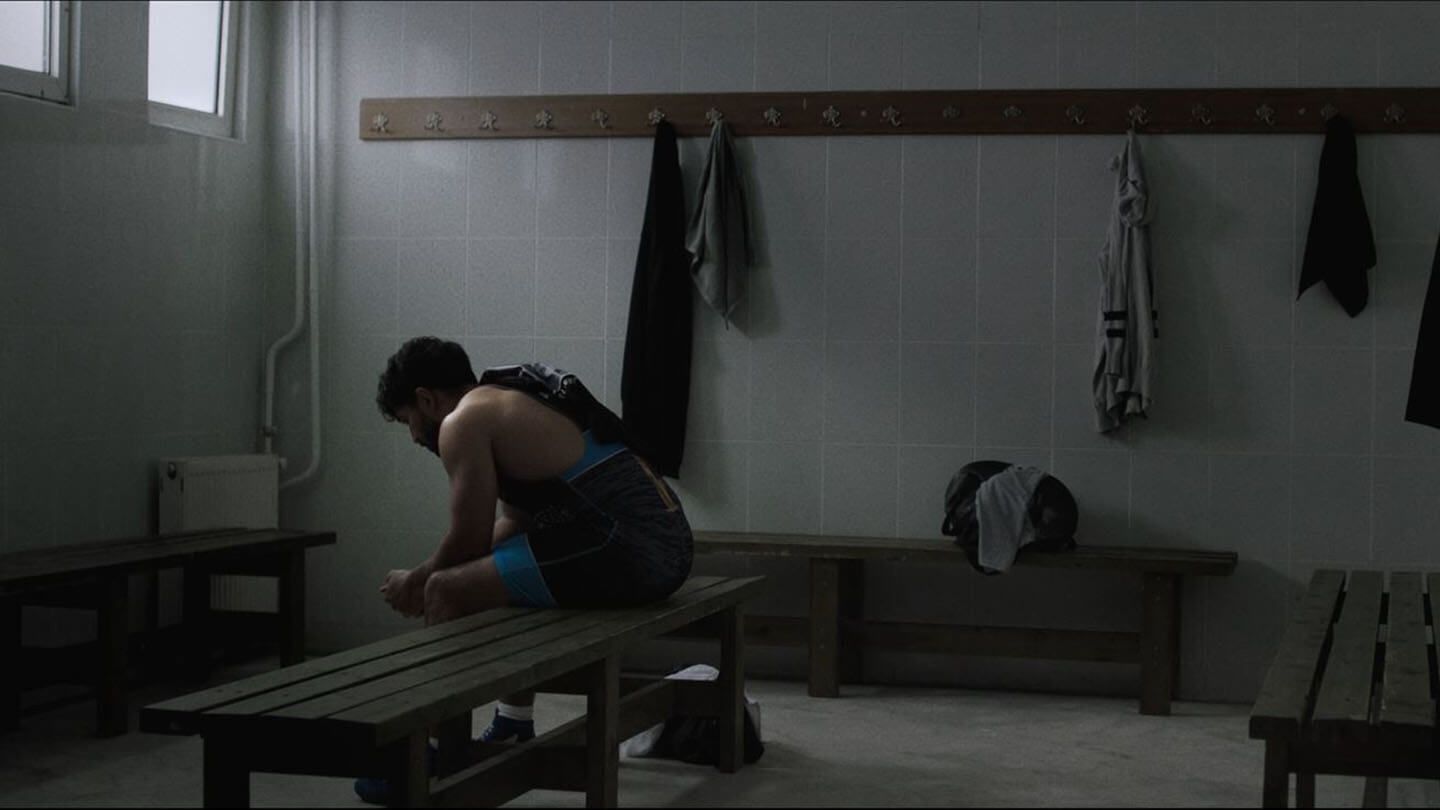The title of Amir Zargara’s A Good Day Will Come is elegiac and profoundly hopeful. Its inherent lament seems to crescendo into bittersweet hope, not because circumstances give cause for it, but because there is no other acceptable option. Based on the life and execution of wrestler Navid Afkari, the ending was never in question, but Zargara’s film preserves apprehension with such a tight hold, it petrifies you in place.
Two things stand out. The intuitive editing that at one point torturously robs the viewer of vision, and Sia Alipour’s performance as Arash. Zargara places the film on Alipour’s shoulders, who carries it with a fierce stoicism that thoroughly earns the character his position as the heart and centre of the film. As Afkari’s stand-in, Arash’s conflict between the individualism of an exalted career as an international wrestler and joining in the protests for the needs and rights of the people is developed over the first act. The carefully calibrated physicality of wrestling is shown almost as beautifully as it is tense. There are rules, honour, civility, and respect. The images stay in your mind through the next two acts: when Arash, with his skill and brute strength, negotiates for peace; and later, when state brutality makes a cruel joke of ethics or honour.
It is here that the film astonishes you with the State’s—and cinema’s—capacity for mercilessness. The film cuts to black but the soundtrack brims with activity as officers cheerfully doom Arash with charges that do not need evidence for you to know instinctively are fabricated; the seconds are excruciating in their complete hold on your senses. There is no real relief afterward.
Mehdi Bajestani, playing Arash’s cynical coach, shines in the epilogue. The absolute absence of his pupil leaves the man even less of a potent citizen than when he was dissuading Arash from activism. He can do nothing but look on with resignation in the face of overwhelming State power. The camera holds its place, intensifying with every passive second the association between the coach’s gaze and the bleakness of acquiescence.
The post-credit title card quotes Afkari, saying what has never left your mind: injustice, unlike wrestling, touches you with its degrading, dishonourable hand. It never lets go on its own.
Watch A Good Day Will Come Short Film Trailer
A Good Day Will Come: Relentless Optimism in the Face of the Tyrannical State
-
Direction
-
Cinematography
-
Screenplay
-
Editing
-
Music
